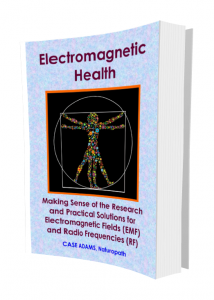Hospitals’ Unnecessary Medical Treatments Exposed
Ressearch is showing that many hospitals, especially for-profit facilities, are charging patients for unnecessary medical treatments. Some of these are charging medicare at unprecedented levels.
In this article
Evidence of unnecessary medical treatment
A few years ago, New York Times exposé revealed evidence that many doctors and hospitals – driven by profits – are conducting unnecessary medical treatments on innocent patients, including heart procedures.
The article, written by Reed Abelson and Julie Creswell, followed a complaint filed by a nurse, and a subsequent letter two years ago from an ethics officer of the HCA hospital chain concerning heart surgeries and other procedures being conducted unnecessarily on patients. HCA, the Hospital Corporation of America, is the largest for-profit hospital chain in the U.S. with 163 hospital facilities.
The complaint spurred confidential investigations within HCA, which confirmed the troubling news. The Times uncovered documents exposing an attempt to keep a lid on the practice.
Hospital Investigations
In one of HCA’s investigations, of 2,400 artery catheterizations performed by HCA doctors, half were done on people with no heart disease.
Following the investigation, the Times reporters found that the hospital chain did not notify those patients who received the unnecessary treatments, as they would have been eligible for refunds.
A number of doctors involved in the unnecessary procedures are still HCA employees.
The Times reporters and their consultants analyzed thousands of pages of confidential HCA communications, including emails and memos between executives.
This is just one of several investigations finding hospital chains conduct and bill for unnecessary procedures. Tenet Health care settled a case ten years ago for $54 million after being accused of more than six years of conducting unnecessary heart procedures and billing Medicare and Medicaid in California. Other studies by other researchers have found that some hospitals have also been conducting unnecessary tests.
Other studies have shown that many hospitals are overbilling patients.
The Cost of Unnecessary Procedures
Unnecessary procedures leading to death in hospitals adds to the danger patients face when they are admitted. Carolyn Dean, M.D., in her book, Death by Medicine, documented that in 2005 37,136 people died due to unnecessary medical procedures. In addition, 106,000 people died from hospital adverse reactions, while 98,000 people died from medical errors, 115,000 died from bedsores, 88,000 died from hospital infections, 108,800 died from hospital malnutrition, 199,000 from outpatient adverse reactions, and about 32,000 died from surgery-related illnesses. This brought the 2005 total deaths related to U.S. hospital institutions to 783,936 for 2005.
According to a nationwide poll conducted by Louis Harris and Associates and released in 1997 by the National Patient Safety Foundation and the American Medical Association, an estimated 100 million Americans have experienced a medical mistake – 42% of those randomly surveyed. Misdiagnosis and wrong treatments accounted for 40% of those mistakes. Medical medication errors accounted for 28% of these, and medical procedure errors accounted for 22% of those.
The Upside Down System
It is obvious that our healthcare system is broken. Why is it broken? Because the system of for-profit hospitals and insurance companies create stockholders and executives that see these institutions as profit-centers rather than facilities to care for sick people. Are we really supposed to be profiting (outside of making an honest living or a fair return) from taking care of our brothers and sisters who have become sick? Are greed and helping sick people really compatible emotions?
Executives of for-profit hospitals and insurance companies are incentified by profits and stock value because they are hired by stockholders and boards positioned to increase the value of their stock. While there is nothing wrong with administrators managing hospitals, or stockholders investing in hospital facilities and getting a fair return, large profit incentives result in the entire system being plagued by greed. For some hospitals, this has resulted in dispensing more medicine and conducting more procedures than may be necessary. Whether the concern is profit or avoiding malpractice claims, the result is the same – unnecessary procedures that sometimes endanger patients.
The conglomeration of for-profit institutions which must wrestle with profits versus caring for patients creates the view that patients are widgets and treatments are sales. Empty beds in hospitals should be seen as a good thing by those who manage hospitals. Instead, empty beds are frowned upon because they mean reduced profits. Thus we find the whole healthcare system upside down.
Whatever happened to the country doctor who cared for and about each patient individually? Those holistic doctors are still around, but many have been pigeon-holed into private practices that must compete with the likes of hospital conglomerates who have mastered (or gamed?) the insurance billing system. Yes, caring doctors are still around. They are just harder to find, as they don’t have as much left over to spend on advertising because they are too focused on caring for their patients.
REFERENCES:
Abelson R, Creswell J. Hospital Chain Inquiry Cited Unnecessary Cardiac Work. New York Times. Aug 6, 2012.
Dean C. Death by Modern Medicine. Belleville, ON: Matrix Verite-Media, 2005.
















